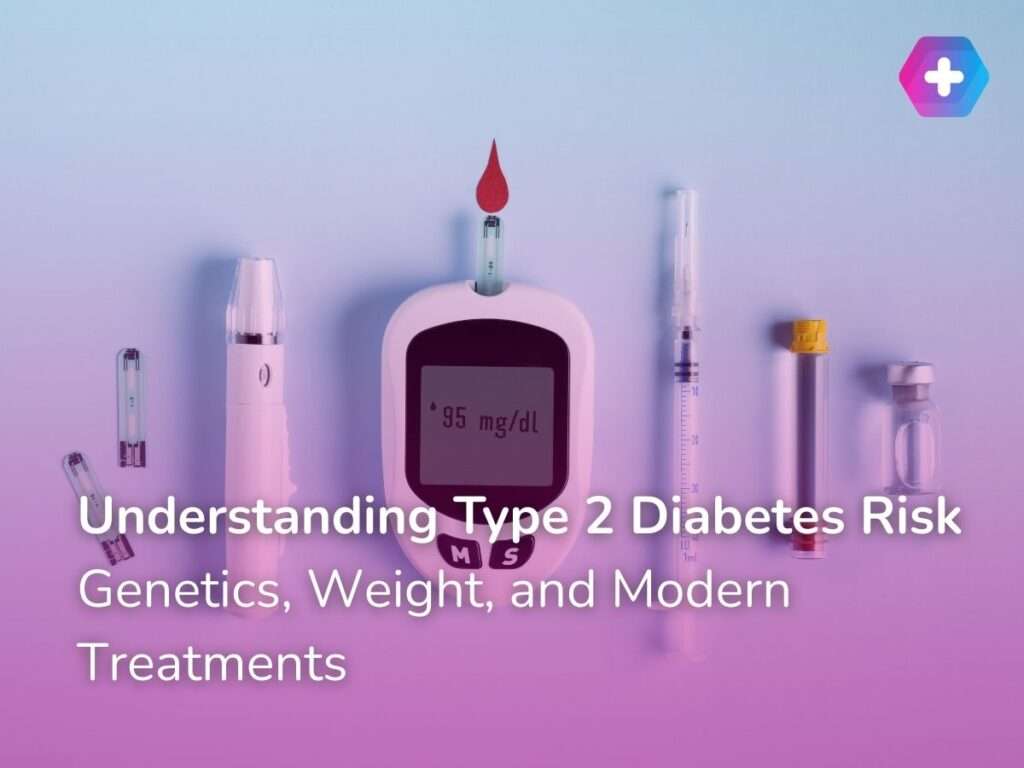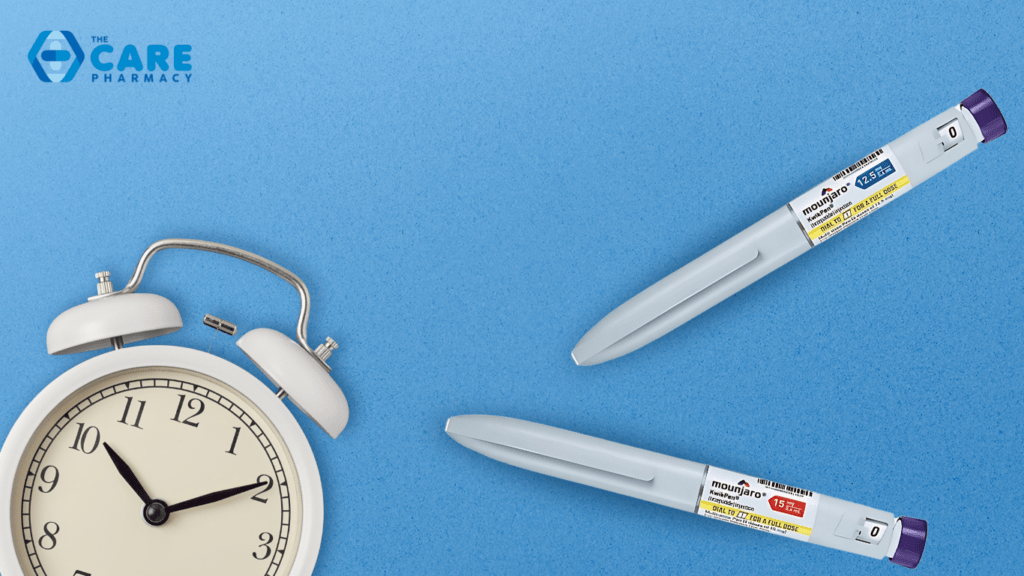Obesity is a growing global health concern, with millions of people seeking effective solutions to manage their weight. Recently, a new medication called Amycretin has gained attention for its potential in treating obesity. Developed by Novo Nordisk, a leading pharmaceutical company known for its innovations in diabetes and obesity management, Amycretin has shown promising results in early clinical trials.
This article will explore the uses, benefits, side effects, and current research surrounding Amycretin.
What is the Amycretin Weight Loss Pill?
Amycretin is an unimolecular long-acting drug designed to aid weight loss for individuals who are overweight or obese. It functions as a dual agonist, targeting both glucagon-like peptide-1 (GLP-1) and amylin receptors.
GLP-1 is a hormone that enhances insulin secretion and promotes a sense of fullness, while amylin helps regulate appetite and slows gastric emptying. By activating these pathways, Amycretin reduces appetite and supports weight loss effectively.
How Does Amycretin Pill Work?
Amycretin’s mechanism of action involves stimulating two critical pathways:
- GLP-1 Receptor Activation: GLP-1 receptors are responsible for increasing insulin secretion, reducing glucagon release, and slowing gastric emptying. These actions contribute to reduced food intake and better glucose control.
- Amylin Receptor Activation: Amylin works synergistically with insulin to regulate blood glucose levels. It also slows gastric emptying and promotes satiety, helping to reduce overall caloric intake.
By targeting both receptors, Amycretin offers a comprehensive approach to weight management, potentially leading to more significant weight loss than medications that target a single pathway.
Clinical Trials and Efficacy of Amycretin Weight Loss Pill
Novo Nordisk conducted a phase 1b/2a clinical trial to evaluate the safety, tolerability, and efficacy of Amycretin. The trial included 125 participants who were overweight or obese, receiving Amycretin via subcutaneous injection once weekly over varying durations.
Weight Loss Outcomes:
- 1.25 mg dose (20 weeks): 9.7% weight loss
- 5 mg dose (28 weeks): 16.2% weight loss
- 20 mg dose (36 weeks): 22.0% weight loss
In contrast, placebo-treated participants showed minor weight gains of 1.9%, 2.3%, and 2.0% over the same periods.
Safety Profile: The safety profile of Amycretin was consistent with incretin-based therapies, with gastrointestinal issues such as nausea and vomiting being the most common side effects. Most adverse events were mild to moderate.
Benefits of Amycretin Weight Loss Pill
- Significant Weight Reduction: Amycretin has demonstrated substantial weight loss in clinical trials, making it a promising option for individuals struggling with obesity.
- Dual Mechanism: By targeting both GLP-1 and amylin receptors, Amycretin provides a more comprehensive approach to weight management.
- Potential for Oral Administration: While current studies have focused on subcutaneous injections, an oral formulation is under development, which could enhance patient adherence.
- Improved Metabolic Health: Beyond weight loss, Amycretin may also improve insulin sensitivity and glycaemic control, offering additional benefits for individuals with type 2 diabetes.
Side Effects and Safety Considerations
Like any medication, Amycretin comes with potential side effects. Common adverse effects include:
– Gastrointestinal issues (nausea, vomiting, diarrhoea)
– Decreased appetite
– Fatigue
Rare but serious side effects may include:
– Hypoglycaemia (especially in individuals with diabetes)
– Pancreatitis
– Severe allergic reactions
Patients should discuss the risks and benefits of Amycretin with their healthcare provider to determine if it is suitable for their needs.
Amycretin vs Other Weight Loss Medications
Amycretin’s dual-action mechanism distinguishes it from existing weight loss drugs like Semaglutide (Wegovy) and Tirzepatide (Mounjaro).
Amycretin vs. Wegovy (Semaglutide)
Mechanism of Action: Wegovy (semaglutide) only targets the GLP-1 receptor, whereas Amycretin targets both GLP-1 and amylin receptors, potentially enhancing weight loss outcomes.
Efficacy: Clinical trials for Wegovy report weight loss of around 15% on average, whereas Amycretin has demonstrated up to 22% weight loss in trials.
Side Effects: Both drugs share common gastrointestinal side effects, but amycretin’s amylin receptor activation may further enhance satiety and glucose control.
Administration: Both are currently available as subcutaneous injections, but an oral form of Amycretin is under development.
Amycretin vs. Mounjaro (Tirzepatide)
Mechanism of Action: Mounjaro (Tirzepatide) is a dual GIP and GLP-1 receptor agonist, while Amycretin combines GLP-1 and amylin receptor activation.
Efficacy: Mounjaro has shown weight loss of around 20% in clinical trials, slightly lower than amycretin’s reported 22%.
Side Effects: Both drugs have similar gastrointestinal side effects, but Mounjaro’s GIP activation may provide additional metabolic benefits beyond weight loss.
Administration: Mounjaro is administered via injection, and amycretin’s oral formulation is in development, potentially offering greater convenience.
Overall, amycretin’s unique combination of GLP-1 and amylin receptor activation may offer superior weight loss benefits compared to Wegovy and Mounjaro. However, long-term studies are needed to establish its full safety profile and efficacy in broader patient populations.
Future Directions
Encouraged by initial findings, Novo Nordisk plans to continue the development of Amycretin. Future studies will focus on long-term efficacy, safety, and the feasibility of oral administration.
Takeaways
Amycretin represents a novel and promising approach to obesity management. With its dual receptor activation, it has the potential to deliver significant weight loss and metabolic benefits. As research progresses, Amycretin could become a valuable tool in combating obesity, offering hope to millions struggling with weight management.
At The Care Pharmacy, we are committed to providing the latest information on innovative treatments like Amycretin to help you make informed decisions about your health. For personalised advice and support, contact our expert pharmacists today.
FAQs
- What is Amycretin used for?
Amycretin is a dual glucose-dependent insulinotropic polypeptide (GIP) and glucagon-like peptide-1 (GLP-1) receptor agonist. It is primarily used to manage weight and type 2 diabetes by improving blood sugar control and enhancing insulin secretion.
- Is Amycretin available in the UK?
As of now, Amycretin is not available in the UK. It is an investigational drug currently undergoing clinical trials for weight loss and is not yet approved for public use. Novo Nordisk, the developer of Amycretin, anticipates that the drug could be available to consumers after 2026.
- What is the new obesity pill for Novo Nordisk?
Novo Nordisk is developing a new oral obesity medication called Amycretin. Amycretin is a single molecule that operates as a GLP-1 receptor agonist and amylin receptor agonist. It is under development by Novo Nordisk as a weight loss drug; unlike some competitors, it can be delivered orally.
In a Phase I clinical trial, participants taking Amycretin lost up to 13% of their body weight over 12 weeks. Based on these results, Novo Nordisk is planning further clinical development of Amycretin in adults with overweight or obesity.
Additionally, Novo Nordisk is developing CagriSema, a combination of Cagrilintide and Semaglutide, as a once-weekly injectable treatment for adults with overweight or obesity.
- What are the side effects of Amycretin?
In early clinical trials, Amycretin has been associated with mild to moderate gastrointestinal side effects, primarily nausea and vomiting. These adverse effects are consistent with those observed in other GLP-1 receptor agonist treatments. As research progresses, more comprehensive data on amycretin’s safety profile will become available.
Medically reviewed by
Mohammed Lakhi
Superintendent Pharmacist











